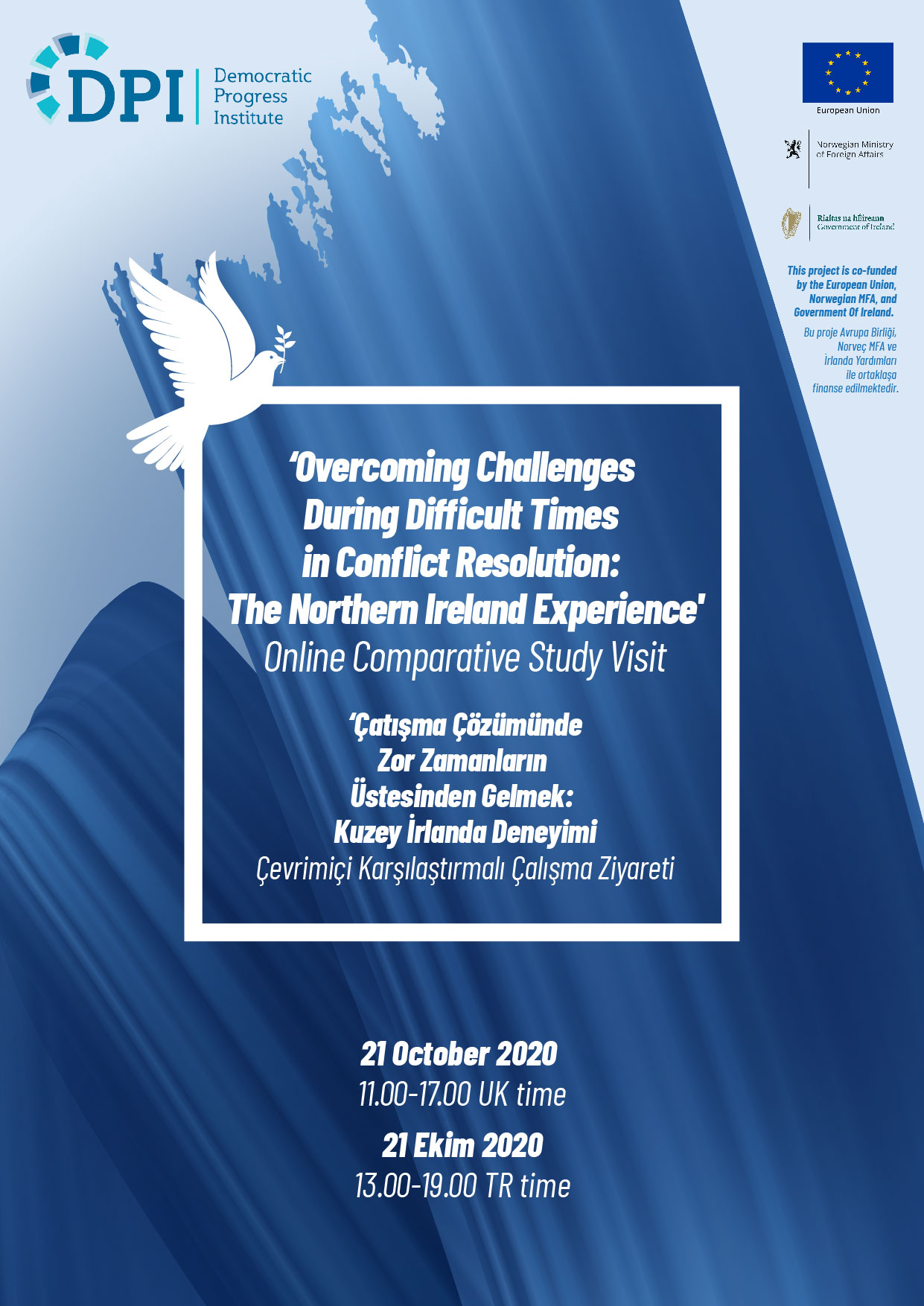On 21st October, DPI ran an online comparative study event entitled Overcoming Challenges During Difficult Times in Conflict Resolution: The Northern Ireland Experience. This activity was designed to introduce participants to key concepts and practices of conflict resolution processes through exposure to the Northern Ireland peace process. In March of this year, DPI was planning on carrying out a full Comparative Study Visit to Dublin and Belfast which, due to the outbreak of Covid-19 had to be postponed. By engaging with and hearing the experiences of key actors during the NI peace process via an online meeting platform, participants were given the opportunity to deepen their knowledge and understanding conflict resolution processes. In particular, this online activity allowed participants to listen to first-hand accounts of how major challenges were overcome during the Northern Irish peace process and, despite difficult periods which threatened to derail the process, an inclusive approach was championed which ensured the peace process was brought back on track, ultimately resulting in the peace agreement known as the Good Friday Agreement. Speakers who shared their unique insights and experiences during DPI’s online Comparative Study event included Aine Hearns, Director of the Conflict Resolution Unit (CRU) at the Irish Government’s Department of Foreign Affairs and Robert Hull, also from the CRU. We were delighted to once again welcome representative of the CRU and Ireland’s Department of Foreign Affairs to speak at a DPI activity and extend our gratitude to them for their continued support. Other speakers included Professor David Mitchel from Trinity College; Avila Kilmurray, a founding member of the Northern Ireland Women’s Coalition; former political prisoners from both the Unionist and Republican sides; and Bertie Ahern, Taoiseach of Ireland at the time of the Good Friday Agreement. This activity brought together a mixed group of participants with diverse political affiliations and coming from a variety of professional backgrounds, including journalists, academics, business people and members of civil society. The online comparative study event forms part of a larger series of activities planned in the context of the project: “Supporting inclusive dialogue at a challenging time in Turkey”, supported by the EU, the Norwegian and Irish government
